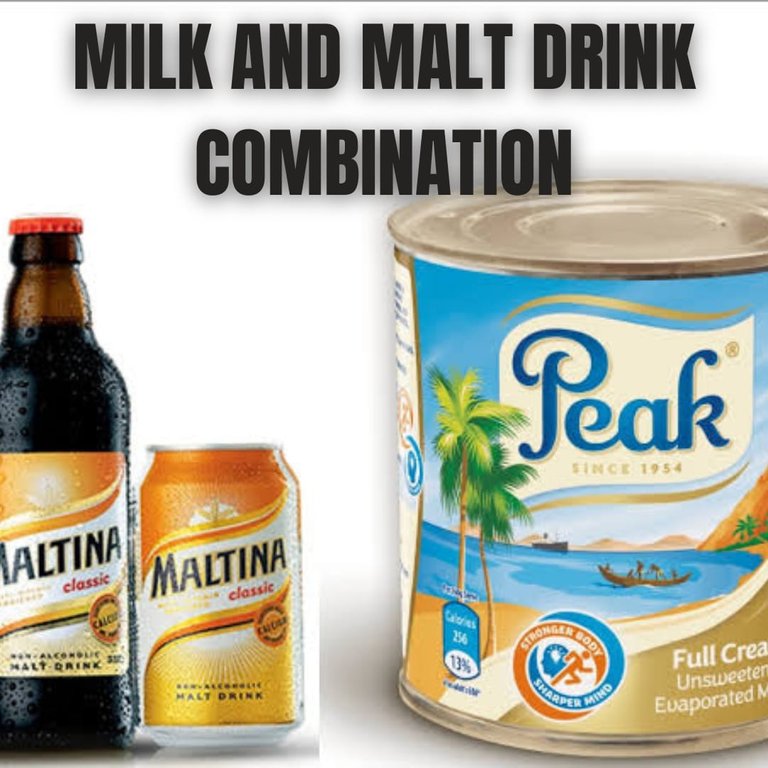Question: Is malt drink and milk, excellent blood replenisher?
Good day everyone. It is my very first post in this community, and I hope it is enlightening enough.
I'm doing this write up because of the perception we (especially Nigerians) have about the mixture of malt drink and milk.

Malt drink and milk concoction in this context refers to the mixture of malt drink and milk. This mixture is sometimes called a malt shake, malt float or malted milk. Malt shakes were originally created as a nourishing beverage for children, but they have since become popular with people of all ages. There's even a myth that milk shakes is a good blood replenisher.
I'd would love to start with that which is needed for blood production.
When talking about blood production, the hormone erythropoietin must come in. Erythropoietin is a hormone that is produced by the kidneys and essential for the production of red blood cells. That means if the kidney is not functioning, erythropoietin will not be produced and there will be no blood production.
For the synthesis of blood by the body, the most important nutrients is 'Iron', for any food material to be considered a blood-booster, it must contain a substantial amount of iron. Also food that contains Vitamin B12 are also considered a blood-booster.
Iron is required to make hemoglobin, which is the protein in red blood cells that carries oxygen. And Vitamin B12 is needed to help make DNA which is the genetic material that cells need to divide and produce new red blood cells. There are also other elements like folic acid, copper and zinc that play a role. Folic acid is a type of B Vitamin that helps to produce DNA and RNA.
If we take a look at the nutritional content of both malt and milk; as labeled on the products,they contains carbohydrates, protein, vitamins and water for malt, while milk contains fat, carbohydrates, cholesterol, vitamins, calcium, phosphorus and magnesium.
Some types of malt beverages do contain iron and vitamin b12 but it is important to note that the amount of these nutrients in these beverages is usually much lower than the amount found in blood. And even if these nutrients were present in the same quantities as in blood, they would not be absorbed by the body in the same way.
Iron and Vitamin B12 in blood are bound to specific proteins, Iron is bound to a protein called transferrin and Vitamin B12 is bound to a protein called transcobalamin. These proteins acts like transport vehicles, helping to iron and Vitamin B12 to cells that need them. But the iron and Vitamin B12 in milk and malt beverages are not bound to these proteins, so they are not delivered to the cells as efficiently.
Now let's look the effect of other ingredients in these beverages, like carbohydrates and fat.
The carbohydrates and fat in milk and malt beverages can actually reduce the absorption of Iron and Vitamin B12. Carbohydrates and fat triggers the release of a hormone called insulin, which in turn reduces the absorption of iron and Vitamin B12.
That being said, it can be deduced that there is no scientific evidence to prove this old belief or perception.
Most times, people when recuperating from illness are advised to take a mixture of malt and milk because it has the characteristics of replenishing dead blood cells that fought the foreign microorganisms during the illness.
Though the concoction may be appealing to the palate, it has no base in scientific realm with regard to blood boosting.
People looking forward to replenishing their blood should try the alternatives like eating Iron-rich foods or taking Iron supplements.
Thank you for stopping by.